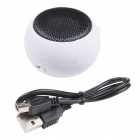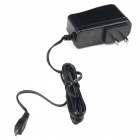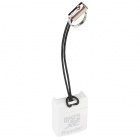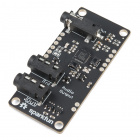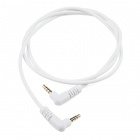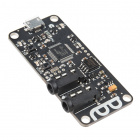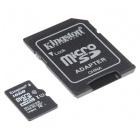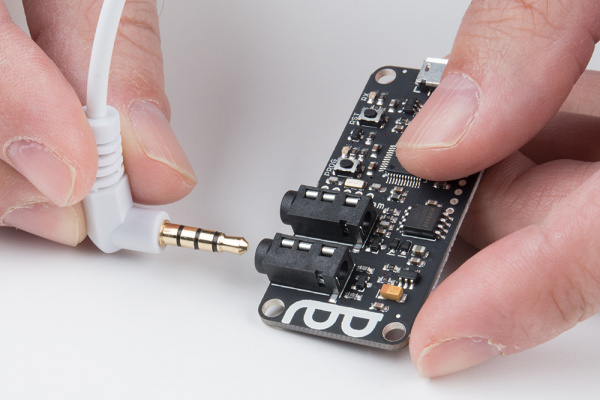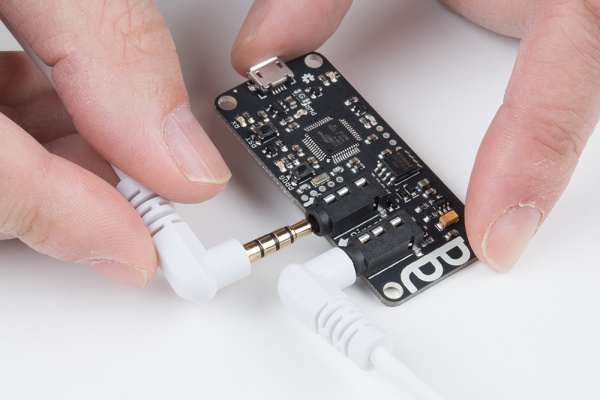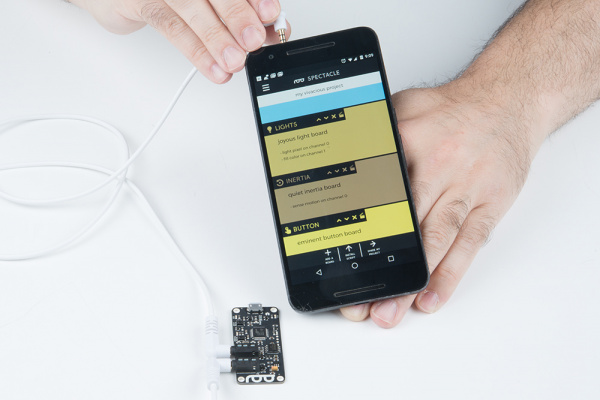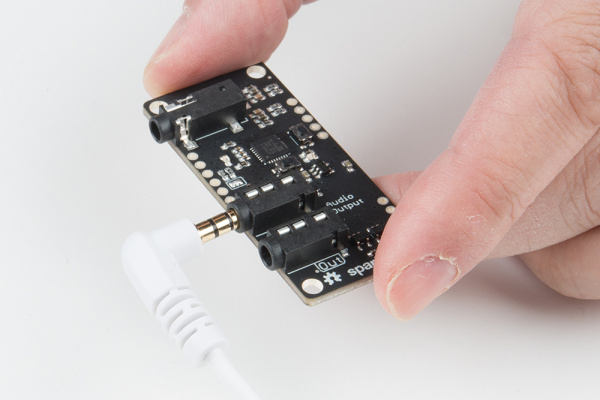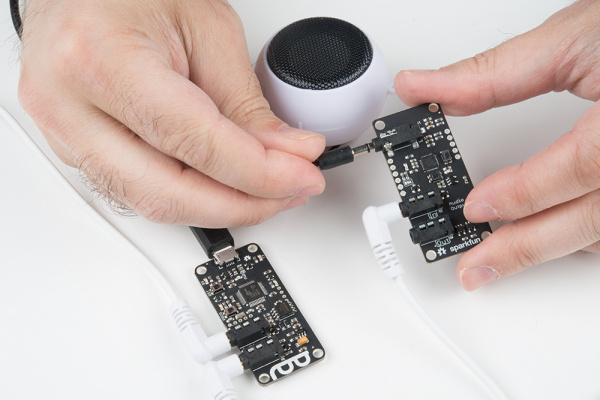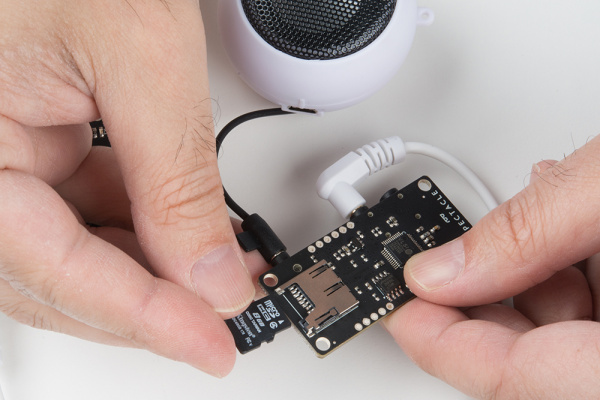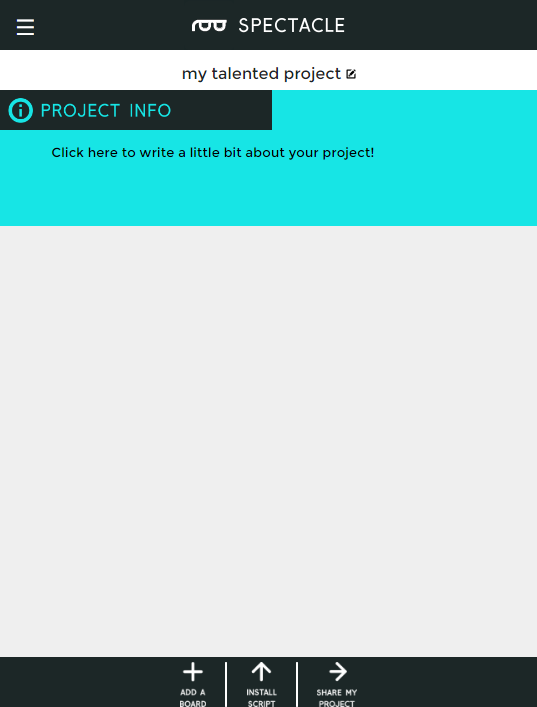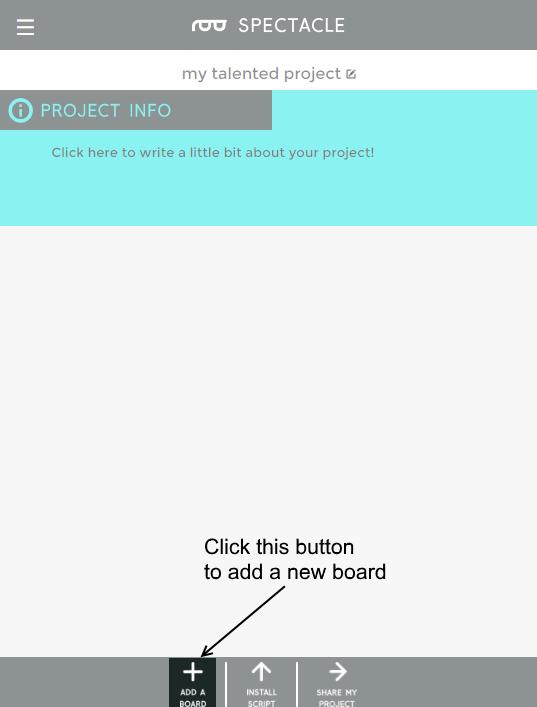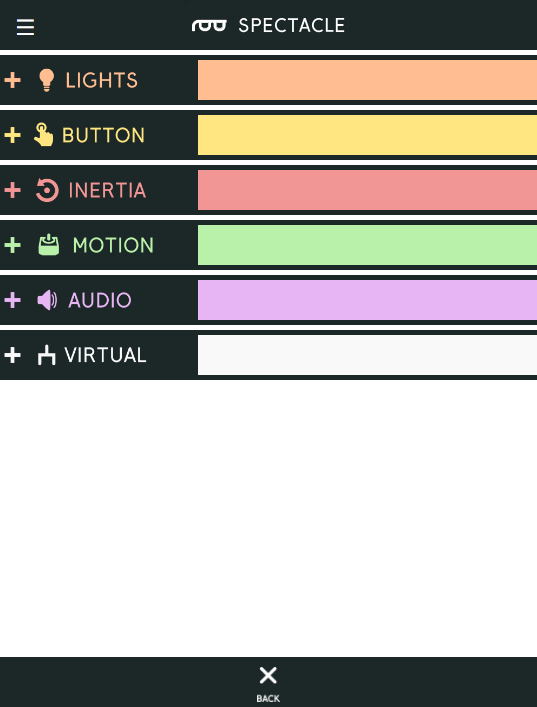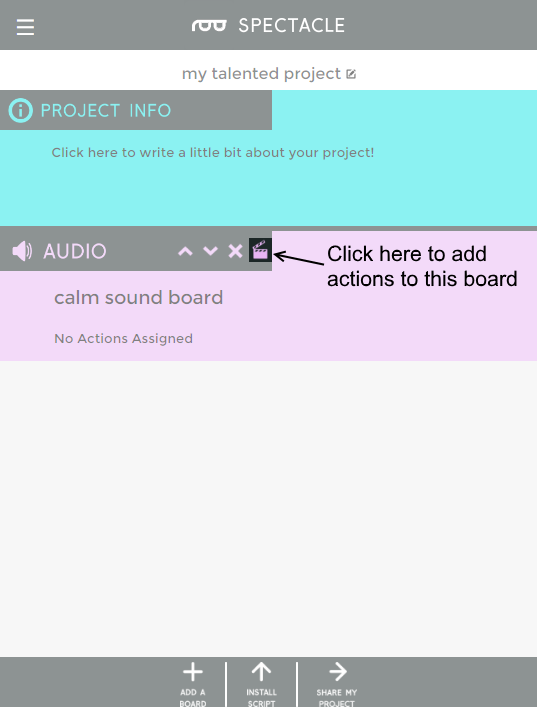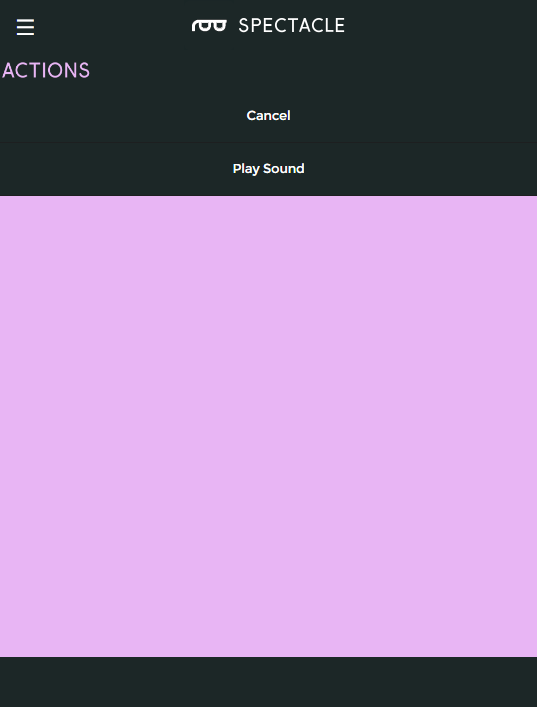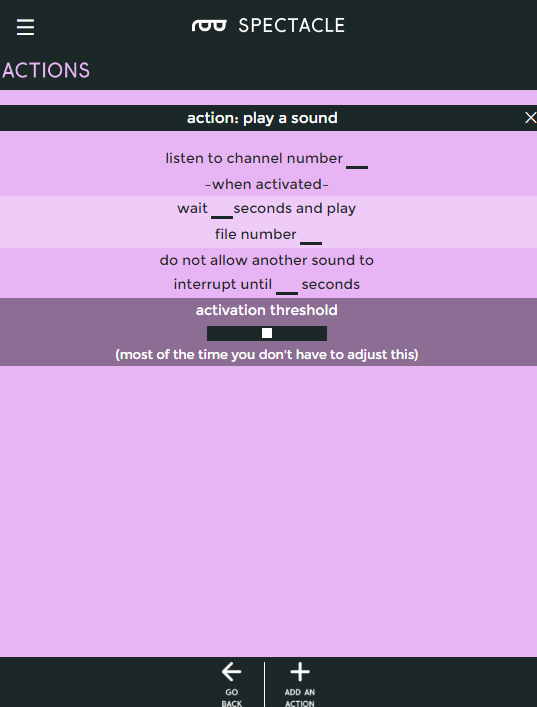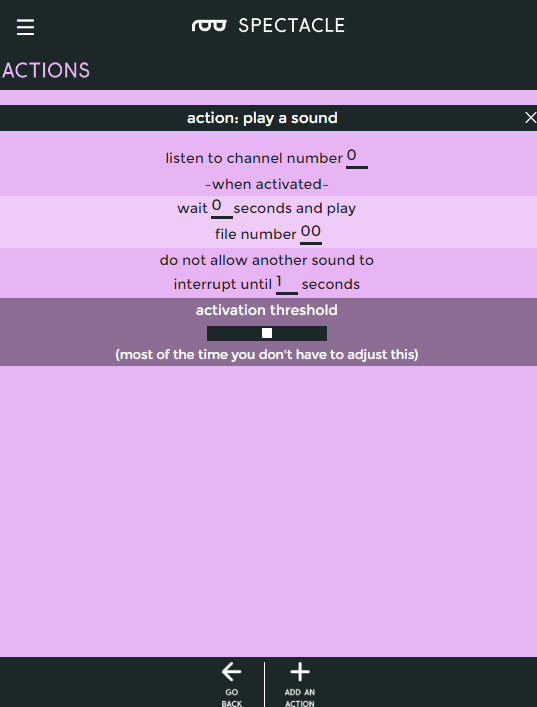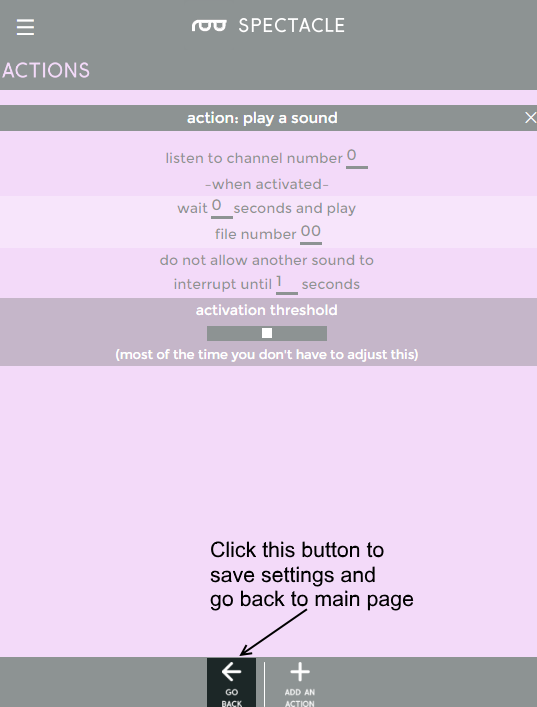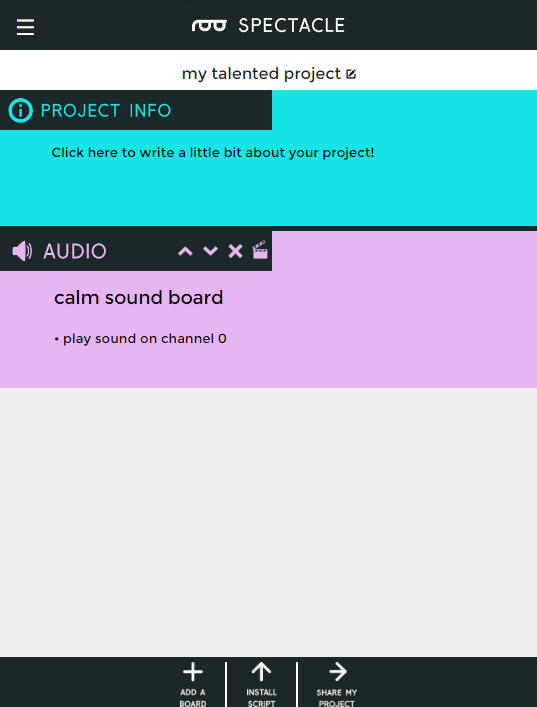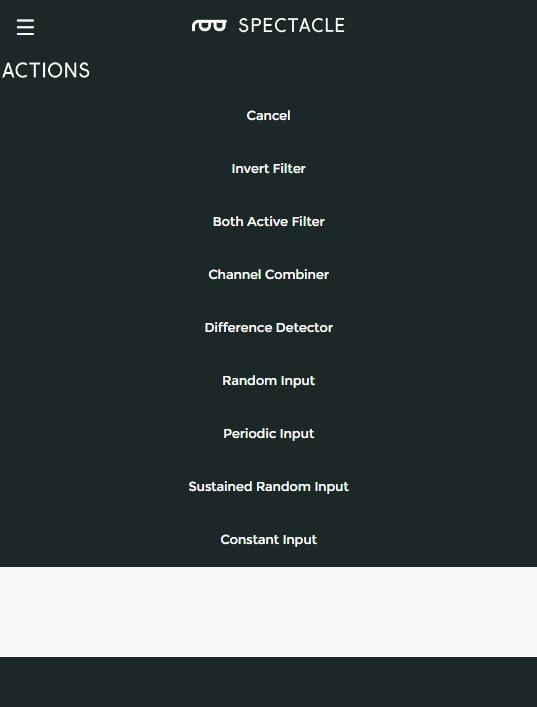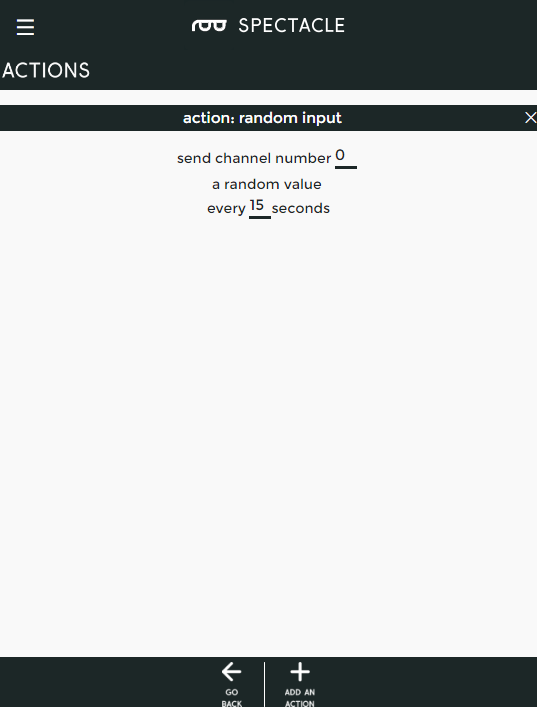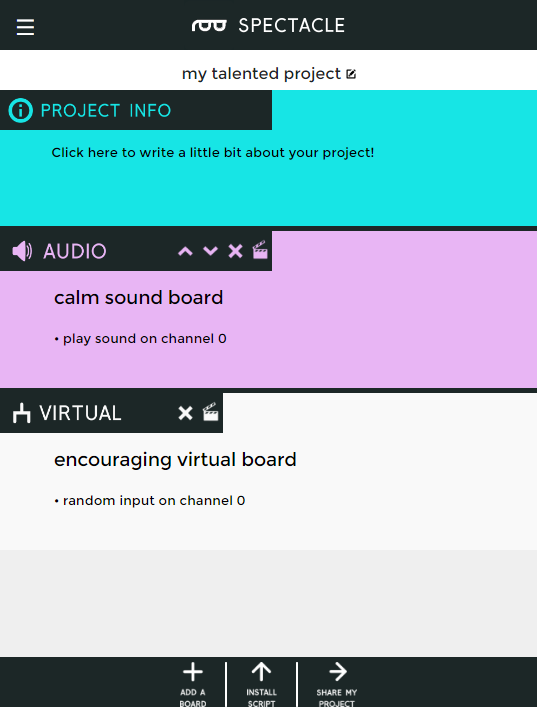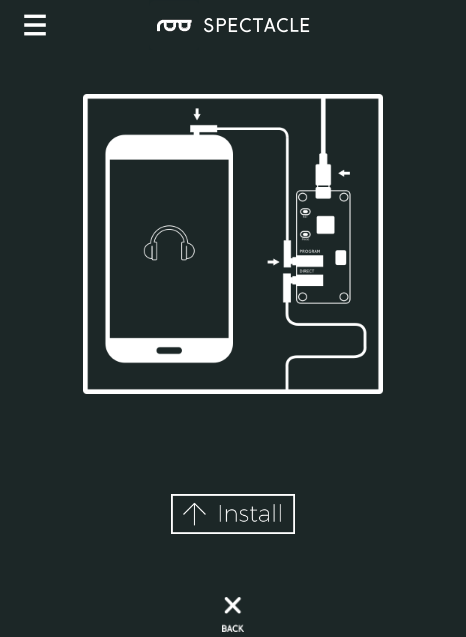Spectacle Audio Board Hookup Guide
Example Project
Let's use the Spectacle Audio Board to play a single sound at random intervals.
Connect the boards
You'll need the following hardware for this tutorial:
microSD USB Reader
COM-13004Spectacle Audio Board
DEV-14034Audio Cable TRRS - 3ft
CAB-14164Spectacle Director Board
DEV-13912You will need two of the TRRS cables. Make sure the speaker is charged before the first time you try to use it!
First, plug one end of one of the TRRS cables into the "Direct" jack on the Director Board.
Next, take the other TRRS cable and plug it into the "Program" jack on the Director Board.
Take the other end of this cable and plug it into the audio jack of the phone, tablet, or computer that you'll be using to program the system.
You'll now need to connect the other end of the first TRRS cable (the one connected to the "Direct" jack) to the "In" jack on the Audio Board.
Connect the speaker to the "Audio Output" port on the Audio Board.
Finally, insert the microSD card with the files you prepared on it into the slot on the back side of the Audio Board.
Finally, plug the micro-B end of the power adapter into the Director Board, and the other end into the wall. You should see one solid light and one blinking light on the Audio board, and on the director board, you'll see one solid light and one light which blinks one time, then pauses, then repeats. This shows that power is present and the boards are up and running.
Setting up the board configuration
We're going to assume that you followed the instructions on the previous page about converting sounds to OGG Vorbis format, and that there is a sound named "00.ogg" on the Micro SD card which is inserted into the Audio Board. If this is not the case, take a few minutes to go back to that page and prepare a sound.
When you first open the Spectacle app webpage, this is what you'll see. Your project name will differ from mine, as Spectacle assigns a random name to each project.
The very first thing you'll do is add an Audio Board to the project. To do this, click on the "Add a Board" button, highlighted in the image below.
Clicking on that button will bring up a list of available boards. Click anywhere in the "Audio" box to add an Audio Board to your system.
We now need to tell the system what we want this board to do.
In the screen that pops up after you click in the "Audio" box, you'll find this little clapboard icon. Click that icon to add actions to the Audio Board.
This will bring up the "Actions" list for this board, which is currently empty. To add an action, click the "Add an Action" button, highlighted below.
Clicking on the "Add an Action" button will pull down this short menu, with only two options on it. Click "Play Sound" to add a sound playback action to the board.
This is the "Play Sound" action settings page. We've covered the meaning of these fields elsewhere in this tutorial, so I'm just going to tell you what to enter in these fields.
Copy the settings from the image below into the fields.
Now click the "Go Back" button at the bottom of the page. The settings you just put in will be automatically saved, and you'll return to the main page of the project.
Now you're back to the main page, and you can see that the action set up in the Audio Board configuration we just did shows up in the list of boards as well, as a reminder of what that board is configured to do.
Now, click "Add a Board" to bring up the board list again, then click on "Virtual" to add a virtual board to the system. This "board" will generate the signal which randomly triggers the audio playback.
Again, click the clapboard icon on the virtual board list item to bring up the action add and edit page.
Here's the list of possible actions for the virtual board. Click on "Random Input" to get the randomizing function we want.
Configure the random input settings as shown in the image below, then click the "Go Back" button to return to the main page.
Congratulations! You've finished configuring the system. Now it's time to install the settings onto the Director board.
Uploading
Now that you've created your Spectacle program it's time to upload it to the Director Board. If you followed the instructions above, your uploading device is connected to the board and ready to go, so all you need to do is touch the "Install Script" button at the bottom of the page. That will bring up the page seen below.
Make sure the volume on your device is turned all the way up, and that no other audio source (music, video, etc) is playing in the background. Then press and hold the "RST" button on the Director Board, press and hold the "PROG" button, then release the "RST" button.
This will put the Director Board into program mode. You'll see the light on the board blink three times, pause, then repeat. This is your visual indicator that the board is in program mode. Once you've established that the board is in program mode, you can begin programming by touching the "Install" button on the Spectacle app screen. The button will gray out during the programming process, which should only last for a few seconds. Once programming is done, you'll see the light on the Director Board blink 10 times, pause, then repeat. That's your cue that the program was uploaded successfully.
Press the "RST" button again to reset the system and begin the program!
If you have any troubles, visit the troubleshooting page for help resolving your issues.
